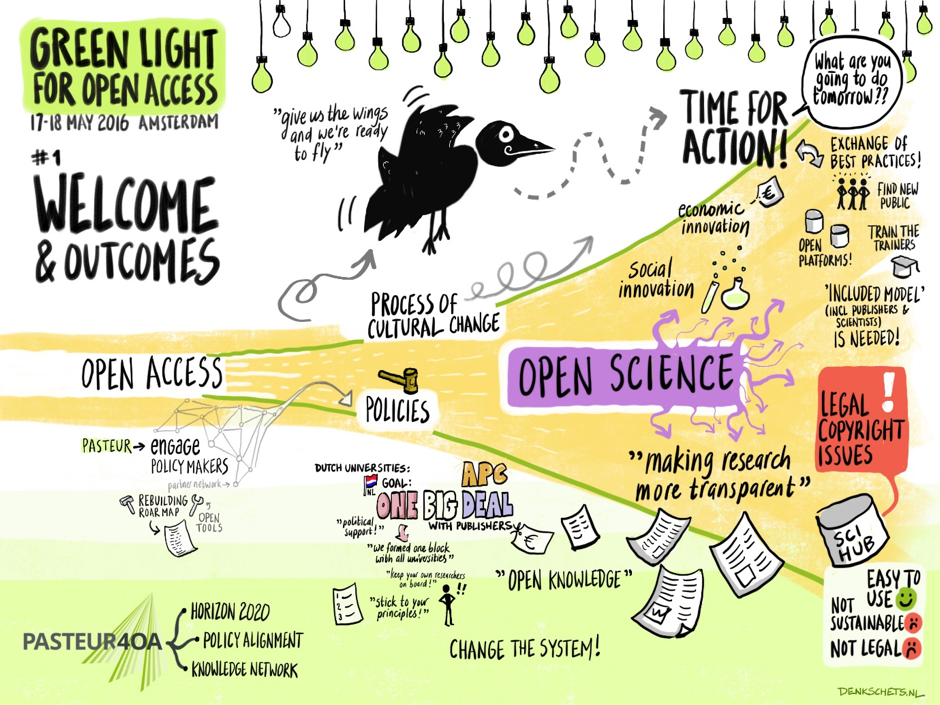
As part of its advocacy resources, the PASTEUR4OA project has made a set of national case studies available covering Belgium, Denmark, Hungary, Ireland, Norway, Portugal, UK. These countries were mostly early adopters of Open Access so it’s useful to learn from their experiences.
Different landscapes across Europe
The case studies highlight the differences between higher education systems in these countries, meaning that different approaches have been taken to policy development. Unlike many other countries, Norway has a centralised research infrastructure; building services to support OA is therefore simplified by having one major research funder, one national CRIS and one key provider of repository services. With a much larger population than others in the case study group, the UK has distributed research and information services, with a large number of universities, many research funding bodies, and several systems providers for repositories and CRIS.
However the size of a country does not necessarily dictate the complexity of its research and information infrastructures. A smaller country such as Denmark still has five research councils, while Belgium has separate research funding agencies for the French and Flemish speaking communities. The complexity of the Belgian political landscape is reflected in the higher education system with federal, regional and community levels of power.
Several of the case studies also point out the value of participating in the project: ‘For relatively small countries like Hungary, the significance of EU-level coordination in shaping OA policies is enormous.’ Norway also welcomes the opportunities for alignment and policy enforcement offered by PASTEUR4OA, acknowledging the ineffectiveness of existing institutional policies.
National strategies
2012 saw a lot of OA policy developments at a national level. The UK Government announced its support for publication in OA or hybrid journals, funded by Article Processing Charges (APCs) and the Research Councils UK (the UK’s main research funder) declared its preference for gold OA. Later in 2014 the UK Funding Councils announced their OA policy for the post-2014 Research Evaluation Framework (REF), requiring deposit in repositories (green OA).
Also in 2012 in Ireland the National Steering Committee on Open Access was established, driven by the post-2008 economic downturn and the resulting need for greater accountability and value for money. It formulated the ‘National Principles for Open Access Policy Statement’, consisting of a green OA mandate with optional provision for funding of gold OA APCs. Around the same time a Norwegian government 2012-2013 White Paper on research required all publicly funded research to be published Open Access and/or deposited in a repository.
Despite the Budapest Open Access Initiative resulting from a meeting convened in Budapest, the impact it had internationally was not felt locally and there is still no national OA policy in Hungary.
Given the governmental structure in Belgium there is no common national Open Access policy, despite the Brussels Declaration. However the CIS-CFS Working Group on OA was created with the objective of providing consultation on OA matters at a national level and to ensure coherence in alignment with European reporting.
Research funders
A major driver for OA is clearly the implementation of OA policies by research funders, requiring researchers receiving funding to provide open access to their results. The Wellcome Trust was the first UK research funder to implement an OA policy in 2005. In 2006 six of the UK Research Councils issued their first OA mandates requiring peer-reviewed publications to be deposited in OA repositories - although this was revised in 2012 as discussed above. Also in 2012 all five Danish research councils implemented a joint Open Access policy in line with the European Commission’s policy.
In Belgium the Fund for Scientific Research-FNRS (the research funding agency for the French-speaking community) and Research Foundation Flanders both mandate green open access. However F.R.S.-FNRS also now supports gold OA by enabling funded researchers to claim the cost of publication in OA journals from funded projects; hybrids are not funded.
The Norwegian Research Council developed an Open Access policy that says all research it funds must be made OA, with all papers and articles deposited in a repository. Likewise FCT, the major Portuguese funder established an OA policy in 2014 which mandates deposit in an IR hosted within RCAAP, Scientific Open Access Repository of Portugal.
In Hungary OTKA, the main research funder issued an OA mandate covering both publications and data in 2008 and the Hungarian Academy of Sciences (MTA) followed in 2012.
Looking forward, some funders in Ireland are considering what steps might be required to assess the socio-economic impact of their OA policies.
Institutional policies
The School of Electronics and Computer Science at the University of Southampton adopted a self-archiving mandate back in 2003, the first policy in the UK. In Portugal the University of Minho defined an institutional Open Access policy at the end of 2004, soon after creating the first IR. However the turning point for OA in Portugal was the launch of the Scientific Open Access Repository of Portugal (RCAAP) in 2008; RCAAP developed an Open Access Policies Kit to support policy development and implementation both by research performing institutions and research funders; this has greatly increased the number of policies.
Meanwhile in Belgium the University of Liège paved the way for OA mandates in 2007 with its Immediate Deposit and Optional Access and in Ireland Trinity College Dublin has led other Irish institutions in adopting mandates.
The Hungarian Academy of Sciences has the only explicit institutional policy in Hungary although several universities either promote OA or maintain (non-mandatory) policy documents. The policy allows both gold and green OA but does not cover research data. The Hungarian Scientific Bibliography Database is used to monitor compliance.
However in Norway despite centralised services in theory allowing easier OA support, a survey of Norwegian research institutions found that while efforts were being made to make research publicly available, policies tended to be non-mandatory.
Repositories and green open access
As indicated above, the focus across these European countries is mainly on OA via repositories. However approaches do vary, and may change over time. For example in Denmark although the national OA strategy includes both green and gold routes, initial implementation has focused on green in order to avoid extra costs (and in fact the National Steering Committee for Open Access is tasked with examining the opportunity for a long-term and cost-effective transition to gold). In Belgium the 2012 Brussels Declaration for OA pushes both green and gold and in the UK the key funders also promote both.
Research data
Despite the recognition for some years in research communities of the key importance of open access to the data underlying research publications, much work remains to be done. The Hungarian case study notes that ‘Open access to research data is unchartered territory and not even the need for it is recognised widely.’
The Danish government is committed to the EC’s recommendation of Open Access to research data as well as publications. However data is not always included in mandates. The Research Foundation Flanders green mandate does include depositing the research data underpinning the publications. However in Ireland there is ‘encouragement’ from the National principles for Open Access to open up the accompanying research data: ‘Research data should be deposited whenever this is feasible and linked to associated publications where this is feasible’.
Slow but steady progress…
It is noted in the Denmark case study that progress towards OA is generally slow. However countries such as the UK which started policy development early, now have a large number of polices in place. Progress may also be faster for institutions starting later, as they can learn from best practice. As part of the PASTEUR4OA national case studies, Jisc has made available a useful summary (1) of the criteria and elements generally specified in OA policies, which also outlines what OA policy elements contribute to policy effectiveness.
(1) Picarra, M. (2015) From policy development to effectiveness and alignment: an analysis of the UK’s HE OA policy landscape.



